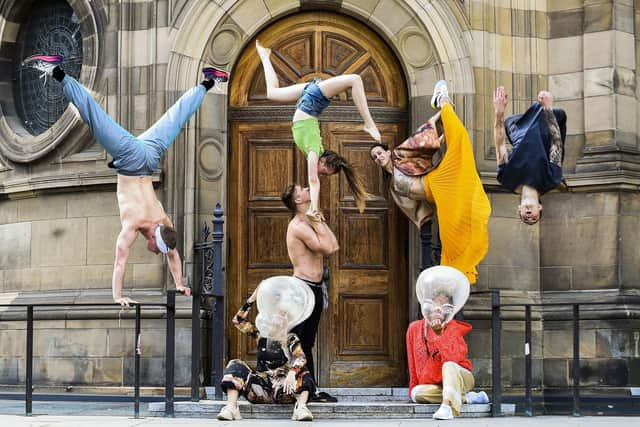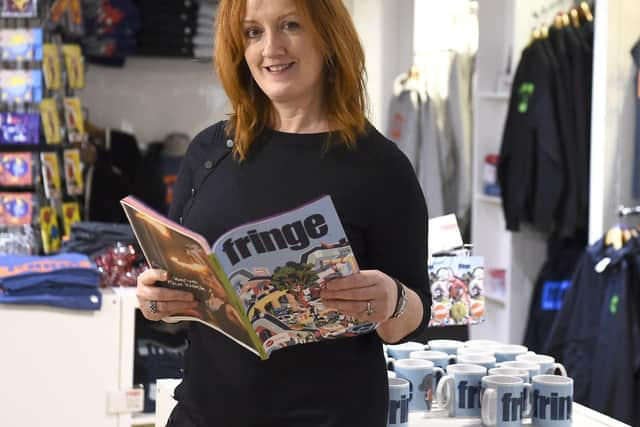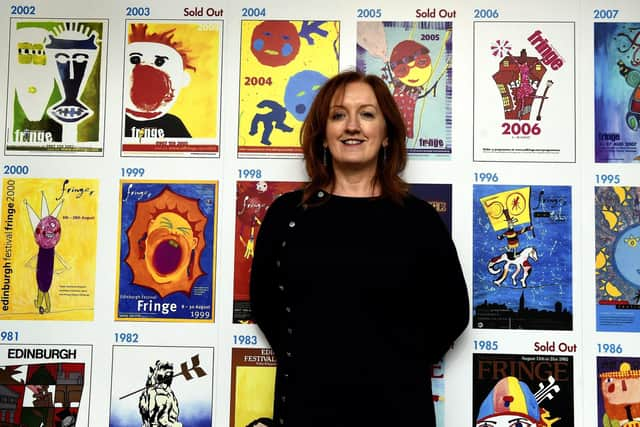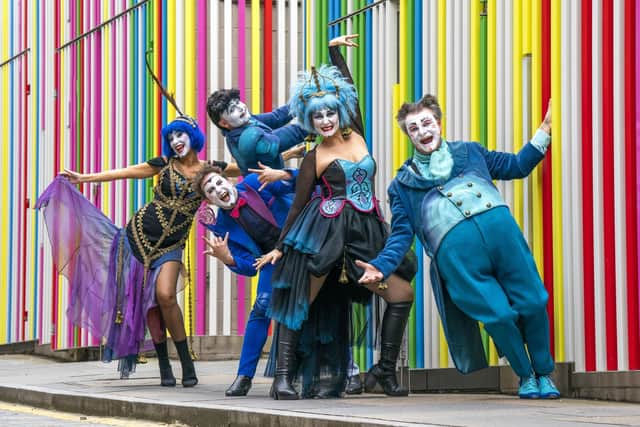Exclusive:Edinburgh Festival Fringe organisers plead ‘moral’ funding case as financial black hole revealed
Organisers of the Edinburgh Festival Fringe have declared there is a “moral obligation” to rethink its public funding amid warnings over a growing financial black hole at the heart of the event.
The Fringe Society, which runs the festival’s programme, box office, arts industry programme and media office, has reported a deficit of more than £630,000 in the aftermath of this year's festival, which sold nearly 2.5 million tickets.
Advertisement
Hide AdAdvertisement
Hide AdThe organisation has pleaded for intervention to end what it describes as a “hand-to-mouth” existence to ensure it has long-term Scottish Government funding in future.


It has warned it may have to scale back key services and has “no resilience” to cope with an unexpected financial crisis unless the festival, which is the biggest cultural celebration anywhere in the world, gets proper recognition.
Society chief executive Shona McCarthy has called for the festival to be properly “validated” by Government agency Creative Scotland when it announces new long-term funding deals for arts organisations next year.
She described the Fringe as Scotland’s most internationally recognised “cultural asset” after the poet Robert Burns.
But she suggested the event was having to be run in a “terrible way” because of a lack of Government support. That support largely comes from the Festivals Expo Fund, with around £550,000 ringfenced to support home-grown artists and productions.


The Fringe Society has asked for help to avoid passing the impact of “astronomical” increases in the running costs of key services onto artists, performers and venues. The charity, which saw its financial reserves of around £750,000 wiped out by the pandemic shutdown in 2020, has seen its deficit more than double since last year. It also has to start paying back a £1 million Scottish Government loan in 2026.
Ms McCarthy said the society was providing an “unquantifiable” service to artists, companies and venues that was no longer affordable under its existing financial model.
Advertisement
Hide AdAdvertisement
Hide AdShe told The Scotsman: “We can’t continue to provide this core service for the biggest performing arts festival in the world unless someone supports us at the core. On the one hand, everyone wants us to be the most affordable and most accessible festival, but the cost of doing everything has just become astronomical.
“When we removed a core service, as we did with the app in 2022, all hell broke loose and the Fringe community went ape. There is a real pressure on us to constantly provide the best possible and highest quality service, but we can’t raise our costs.


"It’s a terrible way to operate with the amount of time, energy and emotional drainage that is going into it all at the moment. We’re literally living hand to mouth year-round.”
Ms McCarthy said the Fringe Society had asked Creative Scotland for an annual “contribution” to its running costs to reflect the international recognition and reach of the 76-year-old event, which was controversially dropped from its long-term funding programme in 2018.
Ms McCarthy said: “I feel there’s now a moral obligation for the Fringe Society to be reinstated as a regularly-funded organisation. We should never have been taken off that roster. First and foremost, the support should reflect the level of work, effort and support we give to Fringe artists on a year-round basis, starting with the thousands of enquiries we get through to the advice, support and information we offer on everything from how to do the Fringe, market your show and budget for it to onward touring.
"But Creative Scotland have the biggest performing arts festival in the world on their doorstep in Scotland’s capital city. Apart from Rabbie Burns, I can’t think of another Scottish cultural asset that has the global recognition that the Fringe does. That should be validated by the national arts agency for Scotland."


Ms McCarthy said the lack of government recognition and support affected the Fringe Society’s ability to attract commercial sponsors and other financial partners to support the event.
Advertisement
Hide AdAdvertisement
Hide AdShe said: They are a bit like ‘what? This is the biggest performing arts festival in the world in Edinburgh. Why is it not being supported by agencies which have a remit to support culture?’ It affects the whole picture for us.
"To be honest, it doesn’t matter to us whether funding comes from Creative Scotland, EventScotland or Scottish Enterprise. We just want to be considered a major, important, understood, national cultural asset. It just doesn’t feel like that at the moment.
"It’s not for us to determine the way the Scottish Government invests in, supports, recognises and validates this enormous cultural asset that it has. We can put our case across and articulate why it is important, the impact it has and why it delivers across government departments.
“But what we would like in response is a strategic approach as to how we are supported, which is about validation, investment and also recognising our current risks. There has been crisis intervention and some levers have been pulled. We’re very grateful and would not have survived without that government loan.
”But what we’re looking for now is beyond survival – we are looking for recovery, stabilisation, strengthening and ambition. We need a strategic response, not a crisis response."
Lyndsey Jackson, the Fringe Society's deputy chief executive, said: “We really need to look at increasing our registration fees and commissions, but we feel we can’t do that because the people who have the least money in this equation are the artists themselves. It’s a pretty stark situation.
"We’ve asked Creative Scotland for a reasonable and proportionate amount as a very small percentage of our total revenue to help us pay for core services.
Advertisement
Hide AdAdvertisement
Hide Ad"We have no resilience at the moment to ensure we are future-proofed or to be able to invest in the stuff we need to. We used to reinvest our profits into infrastructure delivery. We all know technology moves at a pace.
"There are no savings in the bank for a rainy day. We're making ends meet, because we have to, but we have no savings in the pot in case something breaks or the roof falls in.”
Comments
Want to join the conversation? Please or to comment on this article.
